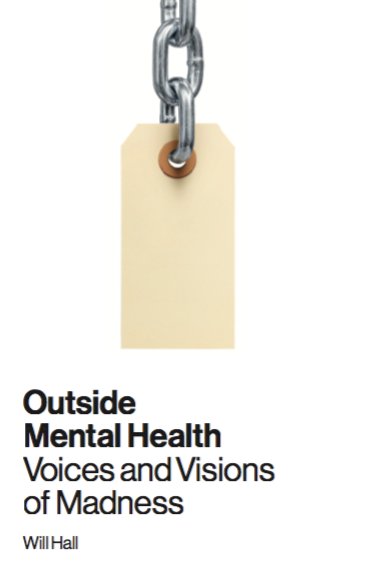Stop The Murphy Bill | Leah Harris | Madness Radio

The Families in Mental Health Crisis Act HR 2646 — The Murphy Bill — proposes drastic changes to US mental health policies. Will the Murphy Bill curb violence and improve care? Or will more forced treatment, medication, and hospitalization only enrich pharmaceutical and medical industry power and reinforce stereotypes at the expense of real human needs?
Leah Harris, psychiatric abuse survivor and organizer for the Campaign for Real Change in Mental Health Policy, completed an investigative report on the Murphy Bill’s potential impact on people in crisis, how the gun manufacturer lobby is involved, and the role of Otsuka Pharmaceuticals.
www.realmhchange.org http://www.ndrn.org/en/issues/mental-health/protect-paimi.html www.proteus.com/press-releases/u-s-fda-accepts-first-digital-medicine-new-drug-application-for-otsuka-and-proteus-digital-health/
Podcast: Play in new window | Download (Duration: 56:20 — 51.6MB)
Subscribe: RSS
- Show topics:
- Activism
- Big Pharma
- Human Rights
- System Abolition



























 Creative Commons 2.5 copyright
Creative Commons 2.5 copyright
Bravo! So much good information from such experienced advocates for people who sometimes have trouble advocating for themselves. We are lucky to have both Leah Harris and Will Hall covering these issues.
Great podcast Will and Leah. and great to hear people pointing out the obvious (to some) to those who have YET to share this experience of unquestioned power and control. How true it is that we who have experienced the system are of little, or no, interest to the current ones “running the asylums”…How backwards it is and yet few notice it.
This is new information regarding Murphy’s ignoring of racist agenda in many of the shootings and his ties to the gun lobbyists. Targeting of a population and labeling us lepers isn’t the answer. The Bill is backwards, forcing “services” on those that do not want them, and refusing real services (such as education, transportation, and medical care) for those that need it and ask for it.
I also did not know about the Abilify tagging. This is too scary!
Abilify is also marketed and approved as an “add on” to antidepressants. Many professionals and patients alike are now misled and do not realize that this drug is an antipsychotic just like any other. The switching of vocabulary to “enhancer” deliberately misleads.
I was put on a cocktail including Abilify for years. I can’t say it did anything for my “mental health” except it was white and round. Why don’t they sell something useful, like mops, sponges, or laundry detergent?
Julie
http://www.wayneramsay.com/evil.htm
Why Psychiatry is Evil
E. Fuller Torrey, M.D., a psychiatrist, is one of today’s leading advocates of involuntary psychiatric treatment, contrary to the views he previously expressed in his book The Death of Psychiatry in 1974. In later books and through his Treatment Advocacy Center, Dr. Torrey urges legislators to make it easier to subject people to involuntary “hospitalization” for mental illness and outpatient psychiatric drugging court orders authorizing what is in reality a type of assault. In his book Out of the Shadows: Confronting America’s Mental Illness Crisis, Dr. Torrey says “It would probably be difficult to find any American psychiatrist working with the mentally ill who has not, at a minimum, exaggerated the dangerousness of a mentally ill person to obtain a judicial order of commitment” (John Wiley & Sons 1997, p. 152, italics added). He quotes Paul Applebaum, M.D., Professor of Psychiatry at Columbia University College of Physicians and Surgeons, saying mental health professionals regularly use “discretion to expand the scope of commitment statutes by admitting who might not qualify under strict [legal] criteria but are thought to be in need of [involuntary] care.” Dr. Torrey continues:
Families also exaggerate their family member’s symptoms to get the person committed to a hospital. In a 1989 study of 83 families in Philadelphia, 18 percent said they had lied or exaggerated to officials in order to get a relative committed. … In fact a number of local officials with the Alliance for the Mentally Ill (AMI), a nationwide support group for families, say they privately counsel families to lie, if necessary, to get acutely ill relatives hospitalized. . . . They say they were attacked when they weren’t, they say their children tried to kill themselves when they didn’t… Thus, ignoring the law, exaggerating symptoms, and outright lying to get care for those who need it are important reasons the mental illness system is not even worse than it is.
What Dr. Torrey means is laws should permit involuntary hospitalization and involuntary treatment without evidence the supposedly mentally ill person has ever done anything violent, making it unnecessary for others to make false accusations of violence to get somebody involuntarily “hospitalized” or involuntarily drugged.
Why Psychiatry is Evil
Institutionalizing Dishonesty
Psychiatry is evil because dishonesty is a routine part of what psychiatrists and those who work with them do.
For example, in my essay Suicide: A Civil Right, I quote Paul G. Quinnett, Ph.D., a psychologist, in his book about suicide saying “doctors like myself will stand up in court and say something to the effect that, by reason of a mental illness, you are a danger to yourself and need treatment” even when they do not believe the person so accused actually has a mental illness.
E. Fuller Torrey, M.D., a psychiatrist, is one of today’s leading advocates of involuntary psychiatric treatment, contrary to the views he previously expressed in his book The Death of Psychiatry in 1974. In later books and through his Treatment Advocacy Center, Dr. Torrey urges legislators to make it easier to subject people to involuntary “hospitalization” for mental illness and outpatient psychiatric drugging court orders authorizing what is in reality a type of assault. In his book Out of the Shadows: Confronting America’s Mental Illness Crisis, Dr. Torrey says “It would probably be difficult to find any American psychiatrist working with the mentally ill who has not, at a minimum, exaggerated the dangerousness of a mentally ill person to obtain a judicial order of commitment” (John Wiley & Sons 1997, p. 152, italics added). He quotes Paul Applebaum, M.D., Professor of Psychiatry at Columbia University College of Physicians and Surgeons, saying mental health professionals regularly use “discretion to expand the scope of commitment statutes by admitting who might not qualify under strict [legal] criteria but are thought to be in need of [involuntary] care.” Dr. Torrey continues:
Families also exaggerate their family member’s symptoms to get the person committed to a hospital. In a 1989 study of 83 families in Philadelphia, 18 percent said they had lied or exaggerated to officials in order to get a relative committed. … In fact a number of local officials with the Alliance for the Mentally Ill (AMI), a nationwide support group for families, say they privately counsel families to lie, if necessary, to get acutely ill relatives hospitalized. . . . They say they were attacked when they weren’t, they say their children tried to kill themselves when they didn’t… Thus, ignoring the law, exaggerating symptoms, and outright lying to get care for those who need it are important reasons the mental illness system is not even worse than it is.
What Dr. Torrey means is laws should permit involuntary hospitalization and involuntary treatment withou
t evidence the supposedly mentally ill person has ever done anything violent, making it unnecessary for others to make false accusations of violence to get somebody involuntarily “hospitalized” or involuntarily drugged.
Thank you so much for your support and Advocacy. Here in France the compound conflicts of interest abound to such an extent that those with emotional distress are completley ignored and are shamefully manipulated and mistreatment. Those who are civil servants are protected and spared any just scrutiny in their treatment of those in emotional distress, it’s a system that MUST changé, but financial impulses are very prevalent in assuring eugenistic policies that deny basic human rights.